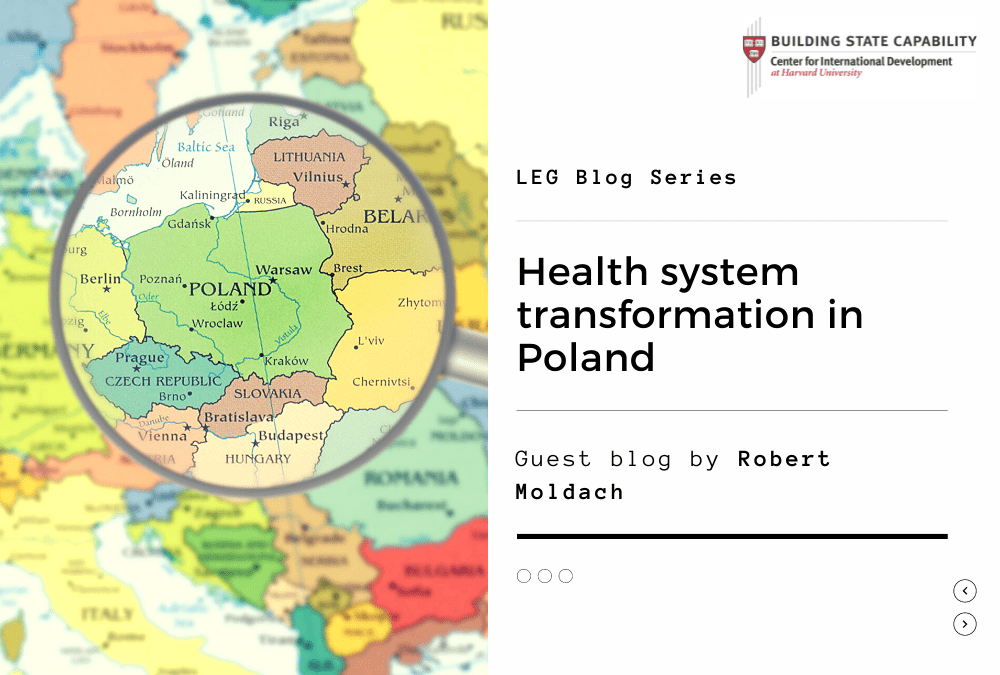Guest blog by Robert Moldach
I am fortunate to live in times when Europe and Poland in particular have undergone an incredible transformation. As a child, I remember the street protests my parents took part in, their talks about the Warsaw Pact troops invading Czechoslovakia, and the anti-Semitic campaign of the late 1960s. My student years coincided with the Solidarity uprising and the martial law that followed. The beginning of my academic career fell during a time of darkness and total economic collapse of the system. Then, in 1989, came the country’s revival, changes in the political system, and economic revolution. We joined the OECD, NATO, and eventually became a member of the European Union recording an extraordinary rate of economic growth. And while this is an undeniable success, along the way we made countless mistakes, some of cardinal importance. We could have approached challenges better such as social inclusion, coherent territorial development, utilization of existing economic potential, foreign direct investment, and finally understanding the sense of us.
The lesson on the “Sense of Us” is in fact the single most important thing I take away from the HKS Leading Economic Growth program. Are we Poles or Europeans, resettled from the eastern borderlands or residents of this land for centuries, Catholics or communists disguised as democrats? And while we intuitively feel how it is, or rather how it should be, we are divided and polarized as a nation in probably every possible direction. The thing that economically we continue to grow at an above-average rate does not change the fact that our economic vehicle is experiencing cracks, fractures and tears that are increasingly difficult to mitigate.
How to return to a path of sustainable growth? The course gave me a tremendous amount of guidance. It demonstrated in a synthetic way the difference between the SLDC and PDIA applications and the values supporting the latter. It showed how to identify the sources of problems, where to start the transformation with a brilliant triple-A approach based on the ability, acceptance and authority principle. It provided evidence how to lead the change, how to build a coalition for it and how not to leave anyone behind.
Facing my particular challenge in health system transformation in Poland, it also brought me couple of refreshing conclusions going beyond the program. The first concerns the tool described as the solution crawling space. It is a section of the PDIA toolkit in which we discuss what solution is technically correct and what is administratively and politically feasible. During our Peer Learning Group sessions (btw, that was an excellent part of the program as well) I realised that “feasible” should not only mean “socially acceptable” but also “politically attractive”. And for an economic growth solution to be politically attractive it is a different story than just to be acceptable. That sparked with some non-trivial ideas of growth focused on health equity, which I will certainly explore.
The other conclusion concerned the atlas of economic complexity, an incredibly informative tool for analysing a country’s development potential that we have come to know. Poland ranks as the 27th most complex country in the Economic Complexity Index (ECI) ranking. Recently we have regressed in this ranking to the 1990s. Despite increasing export diversification, the ECI value of Poland dropped from 1,21 to 1,08 within just two years as we are producing now products with lower complexity. We should wait with definitive conclusions until 2020 data are available, however the problem with understanding the sense of us is certainly one of causes. The question remains why, despite that powerful foreign direct investment, we did not perform as expected.
As a result of inspiring and interactive live sessions with the Harvard team, my understanding of this growth problem is as follows. Referring to the Scrabble theory of economic development, we indeed have many letters. But we don’t know how to use them since we have not created and secured conditions for technology transfer. Most of those advanced products to which Poland contributes, includes only isolated bits and bytes in complex global value chains we don’t adequately control nor are capable to reproduce. In particular in healthcare, it is important to notice the country suffered during the pandemic crisis from the lack of capacity to produce APIs, lack of advanced R&D labs and lack of a relevant economic ecosystem that would support the biotech sector.
Despite what we consider an unprecedented success, too many growth opportunities have been lost over last decades. We could have achieved incomparably more. Can Poland catch-up? I believe it can. It only must not try to copy and paste solutions that eventually worked elsewhere but would appear ineffective in our local conditions. We need to find our way and to redefine the sense of us. That is what PDIA is all about and that is the value of the lectures, discussions, readings and the whole Harvard Kennedy School LEG program.
This is a blog series written by the alumni of the Leading Economic Growth Executive Education Program at the Harvard Kennedy School. 61 Participants successfully completed this 10-week online course in December 2021. These are their learning journey stories.
